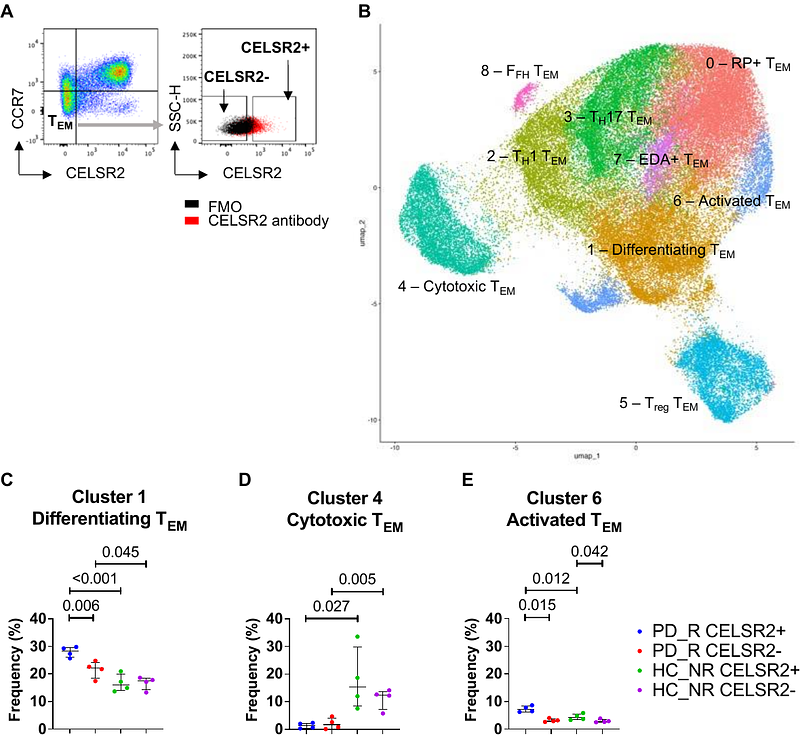Differential memory enrichment of cytotoxic CD4 T cells in Parkinson's disease patients reactive to α-synuclein

Differential memory enrichment of cytotoxic CD4 T cells in Parkinson's disease patients reactive to α-synuclein
Freuchet, A.; Johansson, E.; Frazier, A.; Litvan, I.; Goldman, J. G.; Alcalay, R. N.; Sulzer, D.; Lindestam Arlehamn, C. S.; Sette, A.
AbstractParkinson\'s disease (PD) is a complex neurodegenerative disease with a largely unknown etiology. Although the loss of dopaminergic neurons in the substantia nigra pars compacta is the pathological hallmark of PD, neuroinflammation also plays a fundamental role in PD pathology. We have previously reported that PD patients have increased frequencies of T cell reactive to peptides from -synuclein (-syn). However, not all PD participants respond to -syn. Furthermore, we have previously found that CD4 T cells from PD participants responding to -syn (PD_R) are transcriptionally distinct from PD participants not responding to -syn (PD_NR). To gain further insight into the pathology of PD_R participants, we investigated surface protein expression of 11 proteins whose genes had previously been found to be differentially expressed when comparing PD_R and healthy control participants not responding to -syn (HC_NR). We found that Cadherin EGF LAG seven-pass G-type receptor 2 (CELSR2) was expressed on a significantly higher proportion of CD4 effector memory T cells (TEM) in PD_R compared to HC_NR. Single-cell RNA sequencing analysis of cells expressing or not expressing CELSR2 revealed that PD_R participants have elevated frequencies of activated TEM subsets and an almost complete loss of cytotoxic TEM cells. Flow cytometry analyses confirmed that Granulysin+ CD4 cytotoxic TEM cells are reduced in PD_R. Taken together, these results provide further insight into the perturbation of T cell subsets in PD_R, and highlights the need for further investigation into the role of Granulysin+ CD4 cytotoxic TEM in PD pathology.